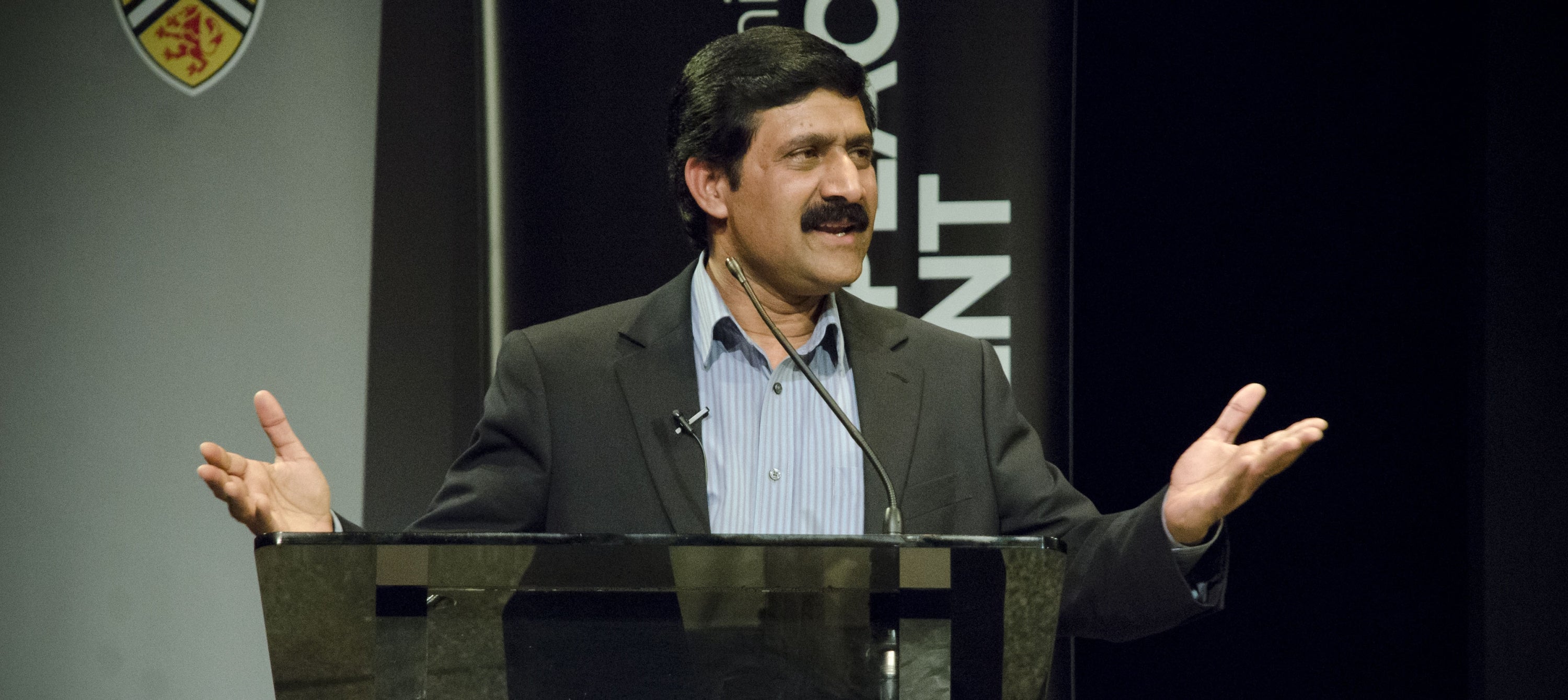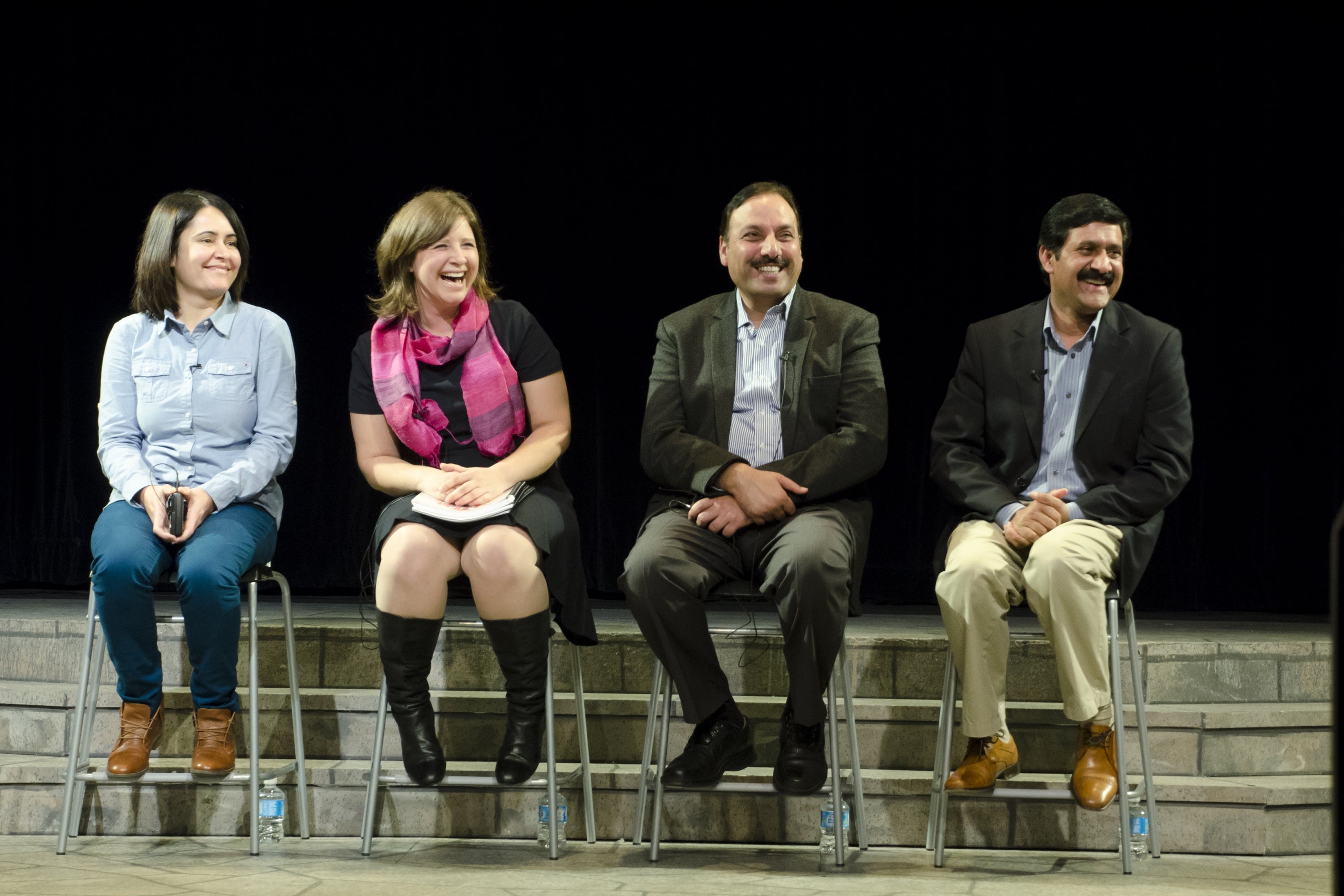By Alexandra Bly,
Master of Peace and Conflict Studies Candidate at Conrad Grebel University College

Throughout the lecture, the common theme was speaking out for what is right, and to find strength in opposing militancy and human rights abuses. Mr. Yousafzai emphasized that when you speak out you gain courage, further asserting that when you live under the fear of being killed or having your basic human rights violated, the best thing to do is to speak out.
Mr. Yousafzai remembers his homeland of the Swat district very fondly, recalling that before the Taliban invaded the region in 2007, Swat was known for its natural beauty, its rich culture and history of the arts, and the peace and harmony amongst the people. When the Taliban took control of Swat they brought immense terror that continues to this day, targeting the police, business owners, peace defenders, moderate Muslim clerics and scholars. Schools were attacked, and women and girls were banned from getting an education.
Mr. Yousafzai stated that in the face of this violence, his daughter Malala had two options: to stay silent or to speak out but risk getting killed. She, of course, chose the second option. He then reiterated how important it is to speak out for peace in the face of danger, and reminded the audience that there are many notable examples of people doing exactly this throughout human history: from Socrates to Gandhi to Nelson Mandela. He recognized that it can be very frightening to speak out in such dangerous circumstances, but that it is even more dangerous to not speak out. The solution, he contended, is never to stay silent. He also stressed the power of Malala’s voice, and that when it is your rights that are being violated, it is your voice that becomes the most powerful.
Importantly, Mr. Yousafzai told the audience that when Malala did speak out she received support from the global community, but her voice was especially amplified by the people within Pakistan. While the international attention was important, it was significant that she received support from inside her own country, and that people gave encouragement to one another to defend peace and human rights. Mr. Yousafzai then reminded everyone that it was important to take action for peace, and to be the change. It is important to continue to work for peace, and to continue with the difficult but necessary task of standing up for change.
As a man passionate about women’s rights and access to education, he spoke very highly of the women in his life, including Malala, and his wife Toorpekai Yousafzai. He expressed the pride that he feels for Malala, commenting on her wiseness. He spoke about how his wife was also stronger and wiser than him on many occasions, and that she is the real power behind the family. Significantly, she provides the courage for him to speak out for truth, peace and justice.

As part of the “Teaching Peace in the Face of Danger” event, Lowell Ewert hosted a panel discussion featuring Nazia Zeb – a UWaterloo student raised in the Swat Valley, Aly Ostrowsky – Master of Peace and Conflict Studies student at Conrad Grebel and community activist, Ahmad Shah – president of the Global Peace Council Pakistan, and Ziauddin Yousafzai – human rights activist and professional educator.